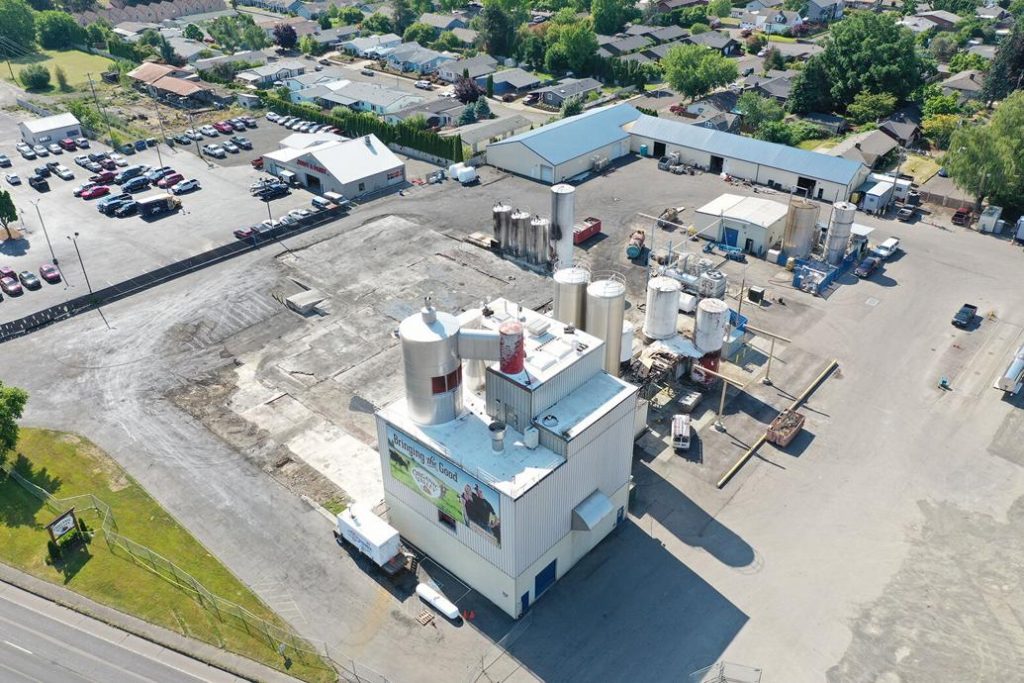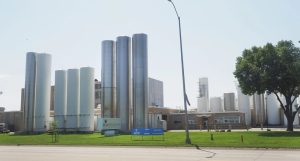
Trucks arrive at what remains of the facility to load and unload milk, which is then transported to other processing plants around the Northwest. While flames destroyed the main 25,000-square-foot building, other assets including storage tanks, the milk dryer and butter churn all survived the blaze.
Before it burned, the McMinnville creamery handled 4 million pounds of organic milk per week to make butter and milk powder.
The question now is whether Organic Valley, the nation’s largest organic farming cooperative, plans to rebuild in McMinnville or look elsewhere to recoup its processing capacity.
“We have to consider our options at this point,” said Steve Pierson, a fourth-generation dairy farmer in St. Paul, Ore., and president of the co-op’s board of directors. “We have to decide what incentives will be available to us, to stay or to go.”
Pierson, of Sar-Ben Farms, said Organic Valley remains committed to the Pacific Northwest. Oregon represents the second-largest pool of milk for the co-op, with 25 farmer-members along the coast and in the Willamette Valley.
Sar-Ben Farms has 320 milking cows and has 175 irrigated acres about 30 miles south of Portland. The operation went organic in 2005. Pierson is the first person outside Wisconsin to be elected board president.
Organic Valley acquired the McMinnville creamery from a local co-op, the Farmers Cooperative Creamery, in 2016. It was renovated and reopened the following year.
After the fire, Pierson said, “It became very apparent how tenuous processing is in the Northwest,” with Organic Valley sending milk as far as Idaho and California.
“I think at first there was a little bit of consternation about what Organic Valley was going to do,” he said. “(Producers) understand how important our footprint here is.”
Pierson said the co-op has gone the extra mile to ensure members their markets are secure. Organic Valley has continued to buy milk, and taken a financial hit for transporting it longer distances.
“Primarily, it’s covered by our business interruption insurance,” Pierson said. “But there is a limit to that. We can’t do that forever.”
He said the co-op plans to hire a firm to help the board analyze its options for adding Northwest processing capacity. Rebuilding the McMinnville creamery, he said, is one option.
“We are not looking to leave McMinnville,” he said. “We’ve been very happy with the city, the employees and our neighbors.”
In an earlier interview with the Capital Press, Mark Pfeiffer, Organic Valley’s vice president of internal operations, estimated the co-op spent up to $23 million renovating the McMinnville plant since 2016.
Nobody was injured in the April fire. The plant had 47 full-time employees, most of which were forced to find work elsewhere but have expressed an interest in returning, Pierson said.
Pierson said there is no deadline for the board to make a decision on the creamery. He thanked the co-op’s processing partners, including Darigold, Kroger and Smith Brothers Farms — which purchased Portland’s Alpenrose Dairy in 2019 — for helping their members continue to access organic markets.
“We’re striving in the future to be able to expand our farmer membership in the Pacific Northwest,” Pierson said. “Our mission is to help sustain small family farms and the communities they live in.”























